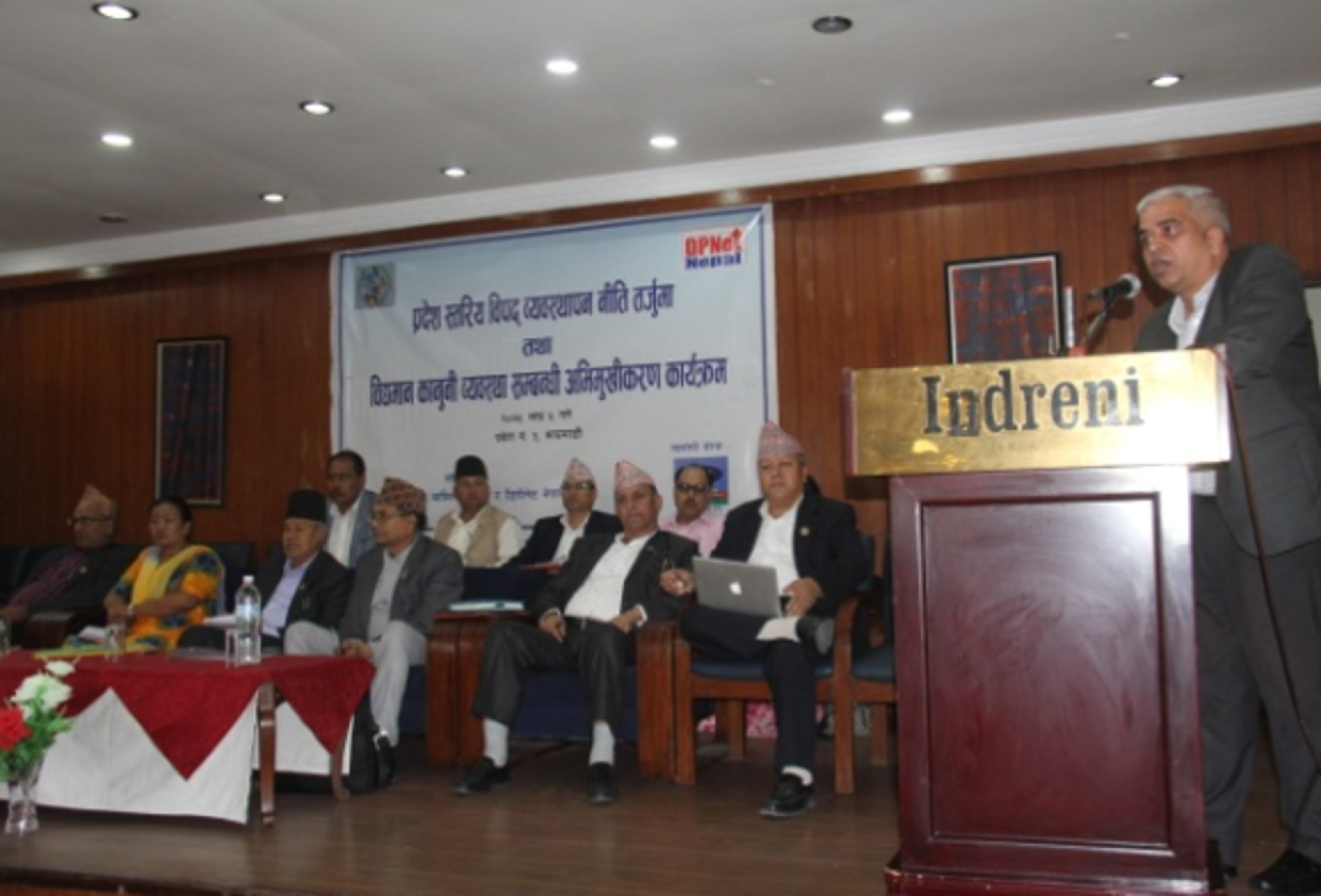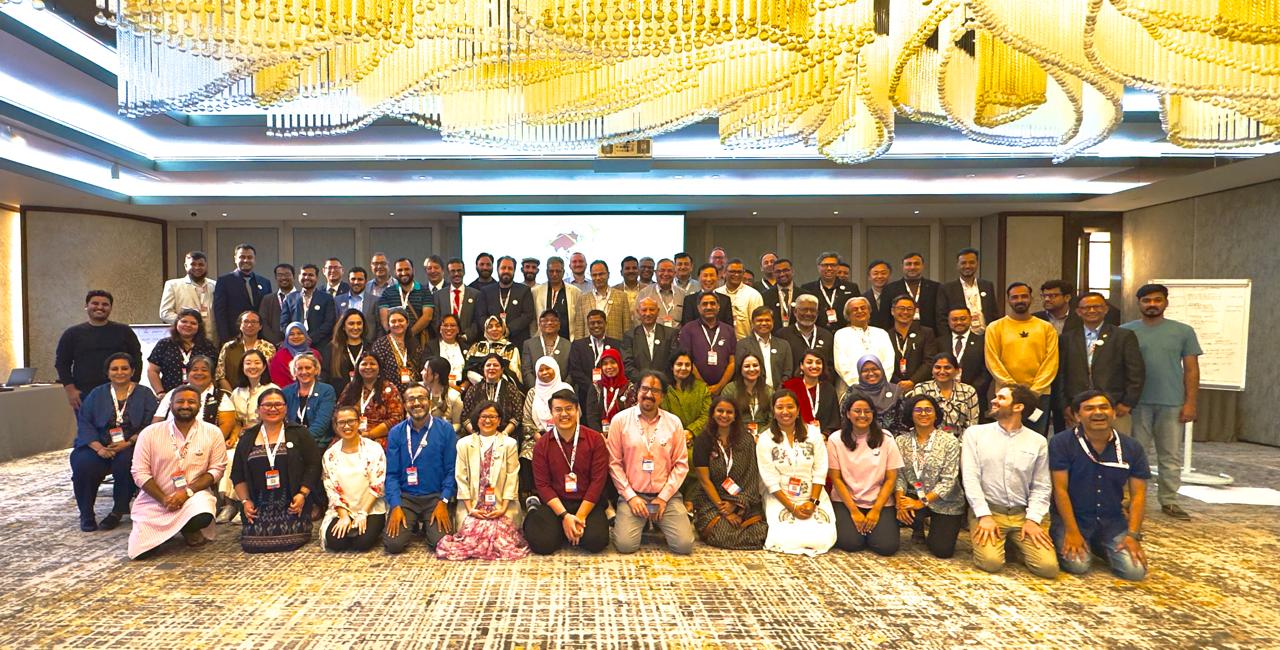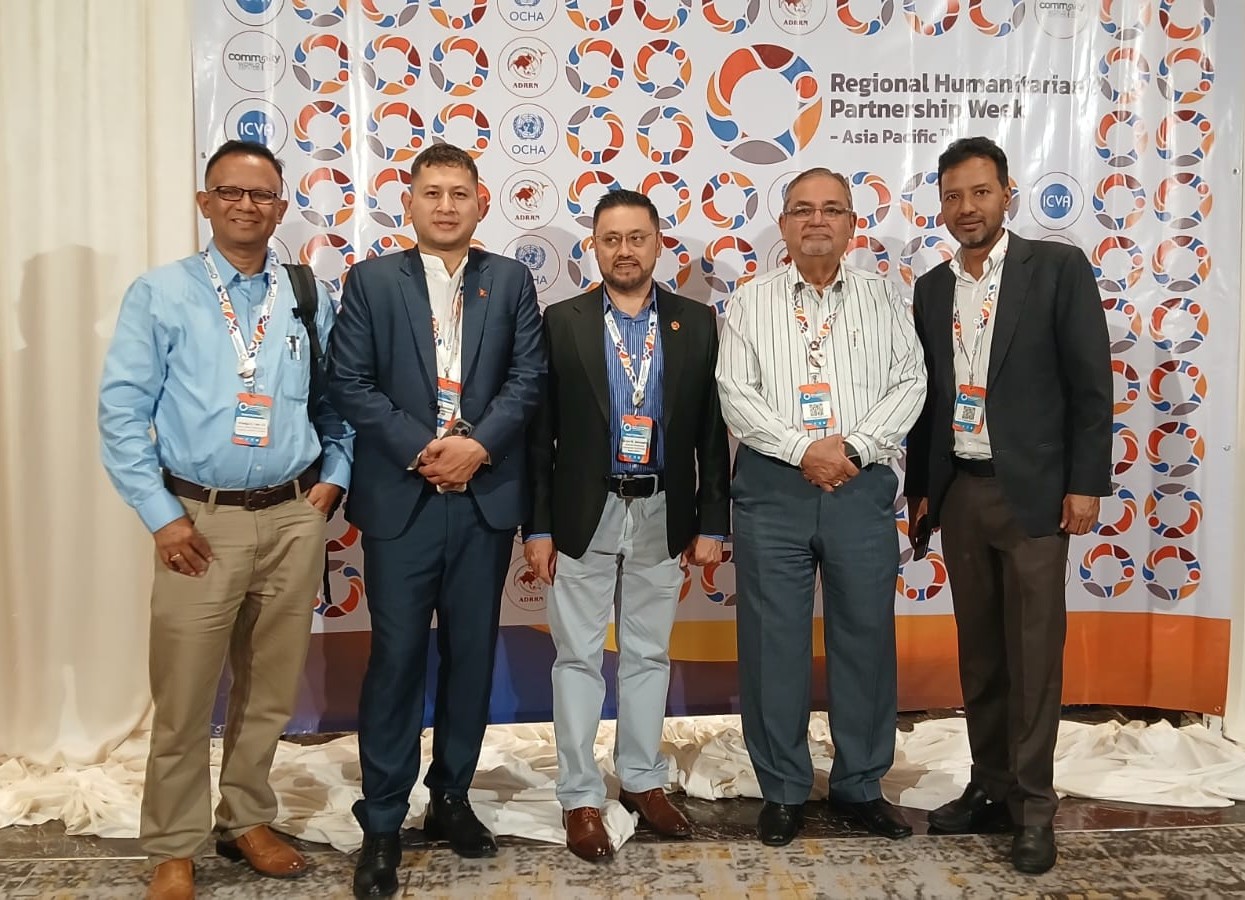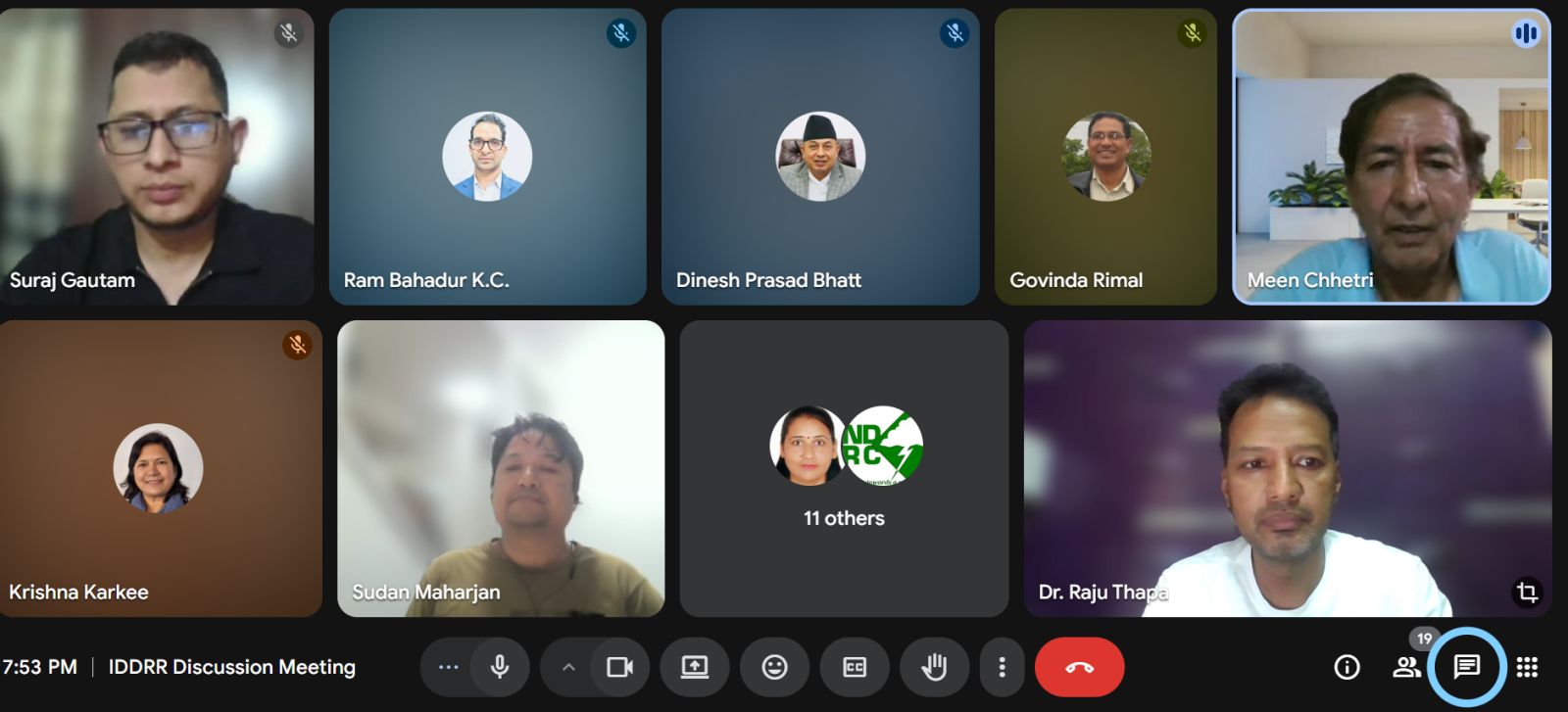Province Level DRR policy formulation and existing legal provisions on DRR

DPNet-Nepal and Province Affairs committee of Province-3 with the support of AINTGDM had organized orientation program entitled "Province Level DRR policy formulation and existing legal provisions on DRR" on 21 st August 2018. The invitees of the program were member of parliaments of province-3, representatives of government agencies and DRR stakeholders representing I/NGO's and UN agencies. Altogether, 25 members of parliament of province-3 and 81 DRR stakeholders participated in the program.
The program was formally started with the chairing of Hon. Madhav Prasad Paudel, president of the Province Affairs Committee. Hon. Sanu Kumar Shrestha, Speaker of Province Assembly was the chief guest of the program, whereas, Dr. Ganga Lal Tuladhar, former Education Minister, Hon. Kailash Dhungel, Finance Minister, Province-3, Hon. Rama Ale, MP of Province 3, was the guest of the program. The program was followed by an invitation of guests to the Dias. Mr. Surya Bahadur Thapa, Chairperson of DPNet-Nepal, briefly introduced DPNet-Nepal and its role as a network of organizations working on DRR. He welcomed all participants and highlighted the objectives of the program.
After the formal welcome program, Mr. Bamshi Acharya, Under Secretary of MoHA shared the presentation entitled "Disaster Risk Management in Nepal ''. He briefly shared the guiding provisions on DRM, defined roles at different levels with reference to the constitution of Nepal, DRR&M Act 2074 and Local Government operation Act 2074. Similarly, he shared the council/committees and government structure on DRM, hope from National Disaster Risk Reduction and Management Authority, fund management and procedures of DM fund flow. Furthermore, he also presented about the conceptual ground of NDRR Policy, prioritized sector and goals and way forward.
The second presentation by Dr. Ganga Lal Tuladhar, Former Minister of Education was focused on the DRR&M Act 2074. In his presentation he shared the disaster scenario of the country, legal provisions of DRR&M, objectives and major provisions of the DRR&M act 2074. With reference to the Act, he also shared the rights of the provincial government. Similarly, he briefly shared how to formulate province level Act and Policies and strategic action plan. Overall his presentation was focused on sharing the knowledge and experience about disaster scenarios, pictorial cases and messages about the inclusion of province based DRR issues in the legal provisions.
Major Concerns
1. Psycho social aspect is more important during disasters, but it's lacking in the DRR&M Act 20174.
2. Still the government has not prioritized disasters, the Act has been endorsed but its presence is not felt. Why is the NDRRMA not established yet? What is the role of MoHA, is it intervention or coordination?
3. We need to think and be careful while delivering the knowledge on disasters. A case like loss of children's life playing in the ground, running inside the house just to hide under the bed seems questionable.
4. If we need to develop a disaster-resilient province-3, we need to identify the risks and allocate at least a 15% budget for DRR&M.
5. DM has to be planned on the basis of geographical features and weather forecast
6. The legal provisions have to be inclusive and a person with disability has to be viewed as a contribution rather than receivers.
7. CBDRR should be promoted and budget allocation is mandatory for mainstreaming DRR into the development process.
Remarks
Hon. Kailash Dhungel, Finance Minister of province-3 stated that the program has shared knowledge about the various aspects of disasters and the legal provisions. He also said that construction should be based on sustainability and building codes have to be followed. Similarly, he shared that our good practices can reduce or minimize disaster risk. He also committed to share the knowledge on the need of legal provisions on DRR in the table of provincial governments.
Hon. Sanu Kumar Shrestha, Speaker of Province Assembly, stated that the Act is very important and if we are only able to educate the public about the disasters, several problems can be solved. In many cases river encroachment has led to disasters and negligence has to be avoided. He also shared that the master plan of province 3 is in the planning process and will work to develop a prosperous nation. He also thanked everyone for their active participation.











